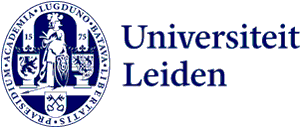
Consultation Meeting Faculty Council and Faculty Board 21 June: Determination OER
The Faculty Council is the Faculty’s advisory council. As such, the council represents both students and staff and acts as a sounding board for the Faculty Board. The meetings between the Faculty Board and Faculty Council (consultation meetings) are open to the public and are scheduled approximately every six weeks. During the last meeting of this academic year, which was held on Tuesday 21 June, the Education and Examination Regulations (OER) was discussed.
The Education and Examination Regulations (OER) contains a detailed overview of all the rights and duties of both students and teachers for each study programme. The document contains the most important regulations regarding education and examinations. A programme’s admission requirements, right of inspection, revision deadlines, and resits are also written down in the OER. It is a legally binding document.
The Faculty Trajectory
Every academic year, an OER is drafted for each individual study programme. The University Board (CvB) devises model documents for bachelor and master programmes after consultation with the University Council. The faculty trajectory starts in January and ends in June and approximately 70 FGGA employees are involved in the process. Both the programme committees and the Faculty Council (FR) have advisory rights as well as the right of consent on various sections of the regulations, depending on the articles.
Liza Koppes, Student Member of the Faculty Council: ‘The FR doesn’t simply agree to everything in the OER. Luckily, this year, we were able to sort out all the differences of opinion, irregularities, and dissatisfactions in time and the FR was able to sign off on all the OERs.’
Max Hoogland, Student Member of the Faculty Council: 'Campus The Hague, but also FGGA, is constantly evolving. We notice that high quality education is being provided to a steadily increasing number of students. Which is why, we as FR, are on the alert to make sure that the quality level continues to be maintained and that the situation regarding the administrative burdens for students and staff members is actively being addressed. Especially now, with the single-resit registrations.'
Changes in process of determination
The OER determination process was different this year compared to other years. For instance, during the consultation phase, more time and space was given to the FR and programme committees to prepare for the discussions to determine the new OER.
The bachelor and master model documents for the academic year 2022-2023 were also send to the FB and FR prior to and after the CvB had made their final determinations. This is an additional step in the process that was implemented to make sure that the FR’s input was incorporated in the model document for the OER. This additional step was created at the request of the FR last year.
And, finally, as part of the university initiative to make sure all programme committees are operating on a professional level, all members of the programme committees, both existing and new, took part in a training on the structure and preparation process of the OERs.
What has changed in the OER?
New this year is that non-funded programmes are advised to adhere to the OER, but they are not obliged to do so. This creates more room to deviate from, for instance, the language requirements. Both the Master Cyber Security as well as MIRD will make use of this possibility.
The most important changes in the OER:
- Standardized English language in the admission requirements;
- Single resit for exams a student has already taken without consent from the board of examiners;
- Enrolment for participation in courses and exams.
The next consultation meeting between the Faculty Council and the Faculty Board will be held on 30 August. One of the items on the agenda will be the budget for 2022-2023. If you are interested in attending a meeting, you can find an overview of the scheduled meetings here.

